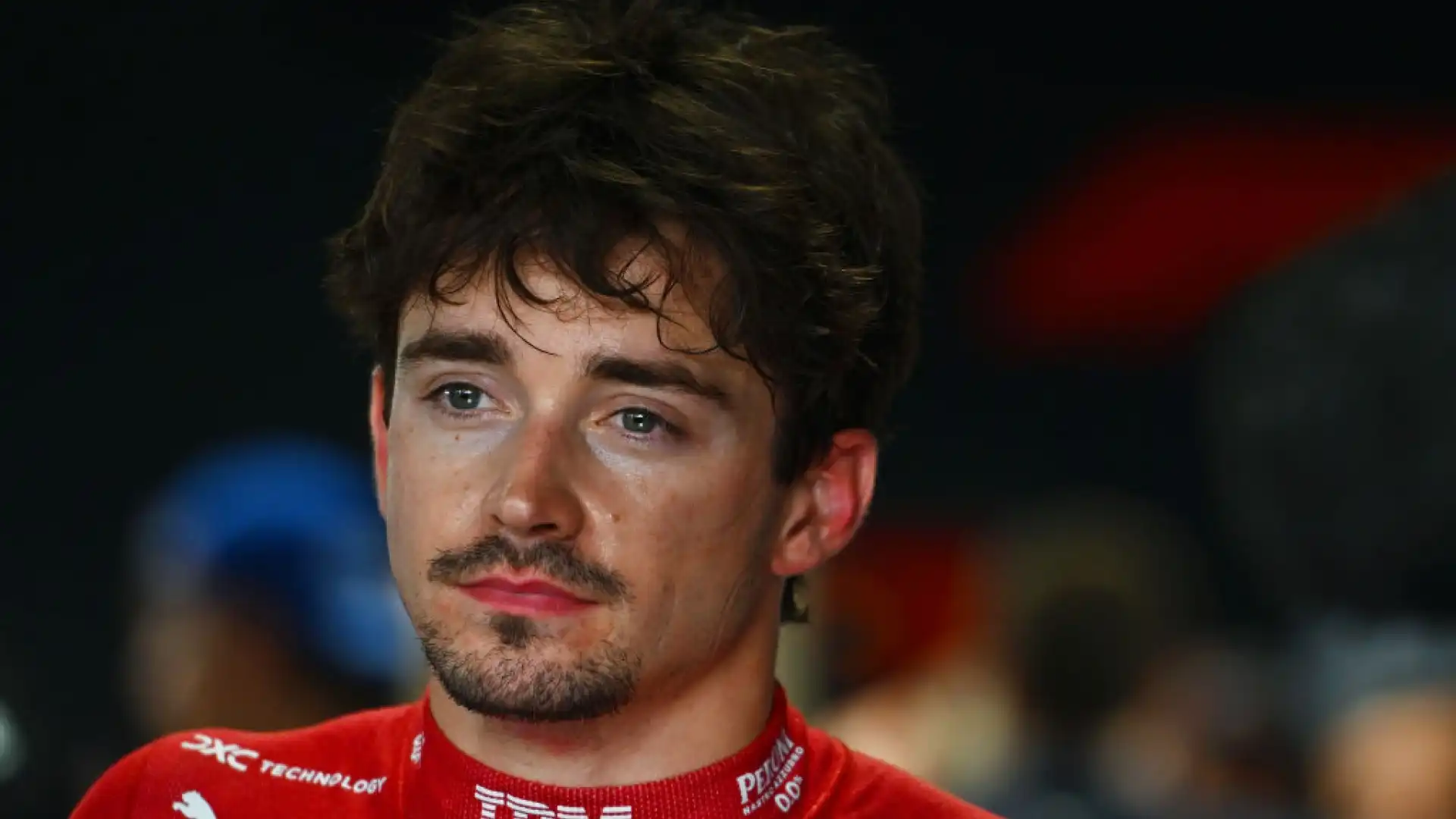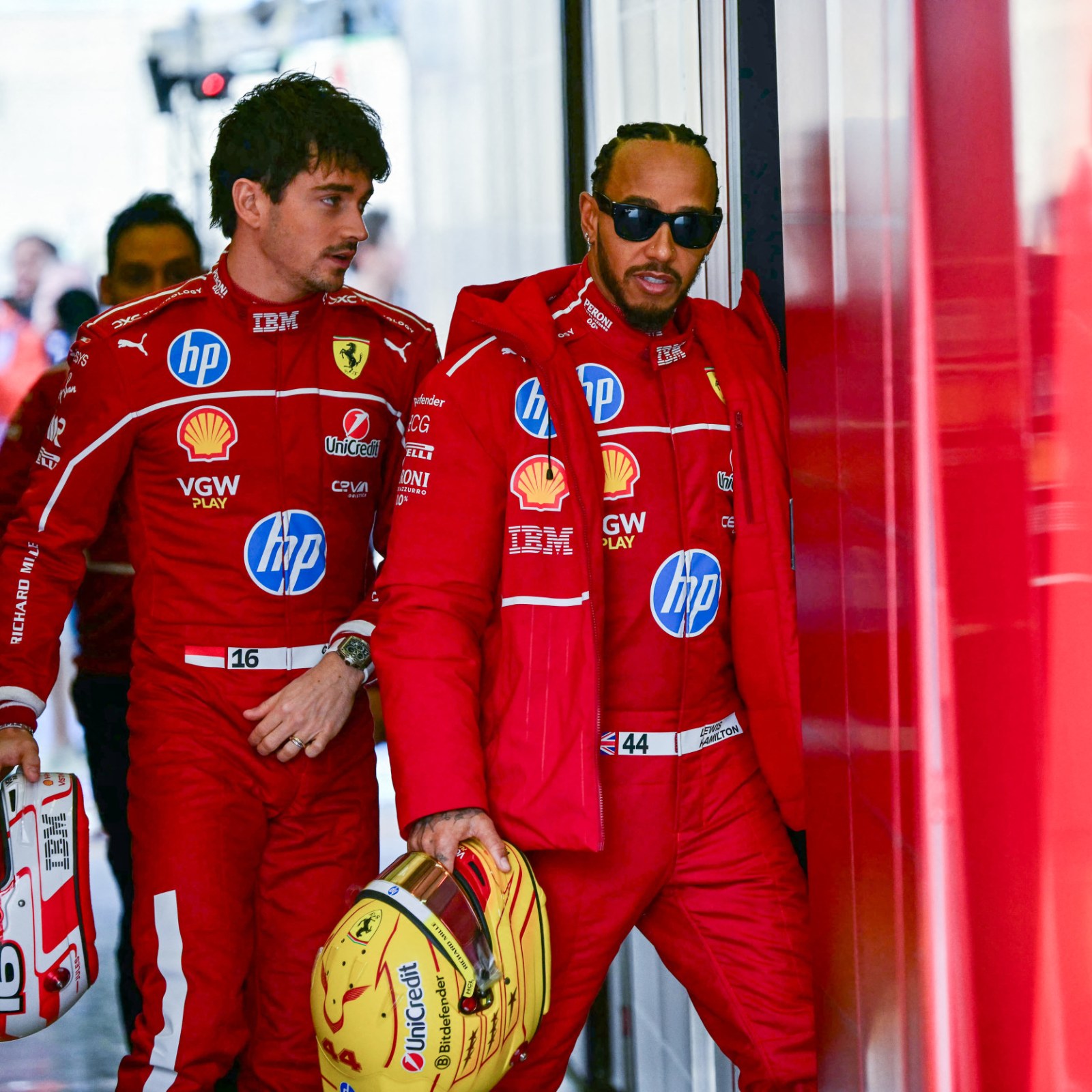As the Formula 1 circus unfolds in 2025, the mood in the Ferrari paddock is thick with debate, anticipation, and, above all, uncertainty.
The storied Italian team faces not just the relentless pressure of competing for wins but also a crucial crossroads about its future direction and technical ambitions.
At the heart of these discussions, high-profile voices from within and outside the team are weighing in on what it will take for Ferrari to reclaim its place at the front in a rapidly evolving sport.

Montoya’s Critique: “Ferrari Must Build for Hamilton”
Juan Pablo Montoya, never one to mince words, has sparked controversy with his blunt assessment of Ferrari’s predicament. In a candid episode of his podcast, the Colombian ex-racer argued that if Ferrari is serious about championship contention, they must stop tailoring their car exclusively to Charles Leclerc’s preferences. Instead, Montoya insists, the focus should shift decisively to their new superstar, Lewis Hamilton.
Montoya’s reasoning? While Leclerc’s performances have often masked the SF-25’s inherent weaknesses—earning praise even from team boss Fred Vasseur—Montoya believes only a car built around Hamilton’s technical feedback and racing instincts offers Ferrari the best hope of a sustained title push. He describes Hamilton’s input as “clear and decisive,” arguing that the seven-time champion’s proven development skills are unrivaled. Cautioning about Ferrari’s complex political ecosystem, Montoya notes that if Ferrari does not decisively back Hamilton—making him the technical cornerstone—they risk falling into the familiar trap of “neutral” car development, failing to maximize either driver.
Binotto: “Hamilton is a Symbolic, Not Strategic, Choice”
Former Ferrari team principal Mattia Binotto, however, offers a coldly pragmatic counterpoint. With decades spent inside Maranello, Binotto questions the wisdom of signing Hamilton at this career stage. He bluntly suggests that while Hamilton’s legacy is unquestionable, Ferrari’s priority should be on nurturing a younger, more long-term leader—much like Max Verstappen at Red Bull.
Grounded in the practicalities of Formula 1’s demanding environment, Binotto highlights the challenges of integrating even the greatest drivers into new technical and political settings. Reflecting on Ferrari’s operational improvements and lessons learned since his departure—including tighter pit stop execution and strategic upgrades—Binotto doubts that Hamilton, now past his prime in his view, can deliver the transformative impact many hope for.

Sainz: “Adapting Takes Time, Even for Champions”
Carlos Sainz, now racing for Williams but uniquely attuned to Ferrari’s inner workings, offers a more sympathetic perspective. Speaking to Mundo Deportivo, Sainz underscores the reality that drivers, regardless of past glories, need time to adapt to new teams and machinery. Using his own career—and famously tricky transition to Ferrari’s evolving technical package—as an example, Sainz argues the F1 ecosystem often underestimates the complexity of this process.
He points to Daniel Ricciardo’s struggles at Renault and McLaren, comparing them to Hamilton’s early difficulties in 2025. Sainz emphasizes that while headline results can lag behind talent, true champions eventually unlock a car’s secrets through technical assimilation and mental adjustment, shining when expectations are tempered by patience.
Hamilton’s Rocky First Season: Learning to (Re)Lead
For Hamilton, the stakes of this transition could not be higher. After a glittering 12 years with Mercedes, capped by six world titles in silver overalls, he now finds himself in the unfamiliar role of needing to deliver results while also helping to lift Ferrari’s development game. Despite a sprint victory in China and a podium in Miami’s sprint, the main race weekends have exposed communication strains with his engineer, notable hierarchy ambiguity, and a persistent lack of the one-lap and race pace expected from a car built for a champion.
Broadcast tensions on the team radio and increasingly critical public statements reveal the depth of Hamilton’s discomfort. External observers like David Coulthard, reflecting on Hamilton’s struggles, see a work in progress: a great driver not yet at one with his machinery or his place inside the team’s operational structure.
Ferrari’s Technical Struggles in the 2025 Arms Race
Technically, Ferrari have found themselves frustrated by the latest regulatory tweaks—specifically, FIA’s TD018 directive on flexible wings, which was intended to homogenize performance. Hopes that rivals like McLaren would be pegged back have not materialized. In Spain, McLaren’s scientific approach and adaptability outclassed Ferrari’s efforts, with Scuderia’s latest front wing and associated aerodynamics upgrades failing to yield the desired stability or pace.
Frederic Vasseur promises a major upgrade for September, but the competitive threat posed by McLaren, now cruising on the back of meticulous technical preparation, remains daunting. Ferrari’s struggle isn’t a lack of resources or theoretical expertise, but rather the inability to anticipate and interpret new regulations as deftly as their closest rivals.
The Commercial Reality: Ferrari and F1’s Big Business Growth
Off the track, Ferrari remains a commercial powerhouse, second only to Mercedes in sponsorship revenue ($450 million in 2025). With 319 sponsor brands and driver endorsements led by Leclerc and Hamilton, Ferrari’s visibility and economic magnetism are undimmed, even as victory on Sundays remains elusive. Engagement metrics—Hamilton’s massive following and the growing popularity of drivers like Oscar Piastri—show that, increasingly, the battle for supremacy is about image and reach as much as raw speed.

Wider F1: Regulation, Testing, and the Future
Against this backdrop, F1 as a whole is at a regulatory crossroads. The return of track testing with previous-generation cars (TPCs) has raised fresh cost and fairness debates, with the sport’s governing body struggling to balance development freedom with economic sustainability and competitive parity. Calls are growing for more regulated, collective testing sessions—a move that could ease costs, improve transparency and give fans better access, but will require buy-in from all stakeholders.
Alonso and the Ghosts of Unfulfilled Promise
Meanwhile, elsewhere in the paddock, Fernando Alonso’s bittersweet home Grand Prix in Spain serves as a reminder of both the endurance and cruelty of F1. Breaking an eight-race points drought but still mired in a winless streak that stretches 12 years, the two-time champion exemplifies how even extraordinary talent can be thwarted by circumstance.
Conclusion: The Cost of Adaptation and the Price of Progress
Back at Ferrari, the conundrum is as psychological as it is technical. Can Hamilton bend Maranello’s might to his will? Will Ferrari choose decisively between its two drivers? Or will strategic ambiguity, political caution, and technical conservatism again keep Italy’s greatest sporting institution a step behind its upstart rivals?
As 2025 advances, the answer to these questions may well dictate not just Ferrari’s fortunes, but the very shape of Formula 1’s future. In this paddock, the discussion continues—and the stakes have never been higher.





